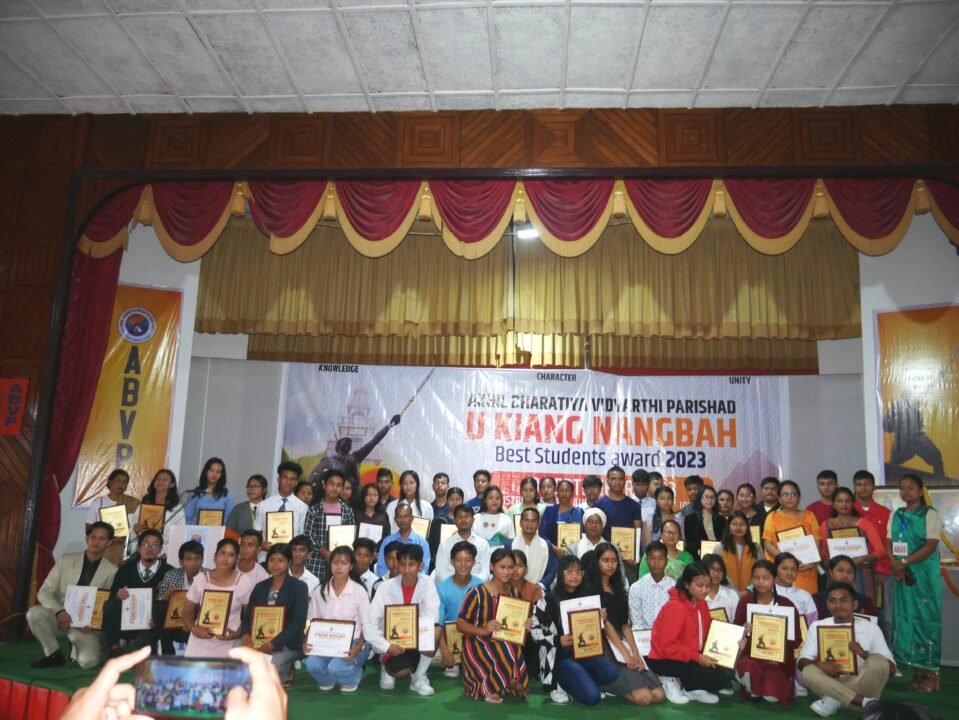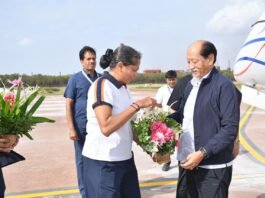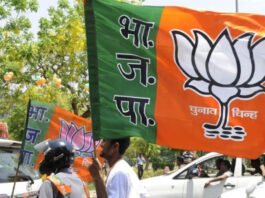HT Digital
SHILLONG, APR 10: A peaceful protest organized by the Meghalaya chapter of the Awaken India Movement (AIM) sparked controversy on Wednesday, as demonstrators rallied against the government’s enforcement of mandatory Aadhaar linking for access to welfare schemes.
Held in front of the U Kiang Nangbah statue, opposite Shillong Civil Hospital, the rally turned tense following a brief altercation between protesters and police, drawing sharp criticism from civil rights groups.
The primary aim of the demonstration was to oppose the compulsory Aadhaar requirement for availing government benefits. Addressing the gathering, AIM Meghalaya chairman Banshai Marbaniang clarified that the movement is not against Aadhaar itself, but against the forced imposition of the system. “We are defending the people’s right to choose whether or not to enroll in Aadhaar,” he stated.
Marbaniang highlighted multiple instances where citizens, especially from underprivileged backgrounds, were denied food rations, scholarships, and essential services due to lack of Aadhaar. He condemned educational institutions for rejecting students without Aadhaar and accused authorities of ignoring the plight of the poor.
“Villagers are going hungry, and students are missing out on their future simply because of bureaucratic rigidity,” he said, urging the state government to respect personal choice.
North Shillong MLA Adelbert Nongrum, who was present in solidarity, echoed these concerns. He called on the state to raise the issue with the Centre and advised students to demand written explanations from schools that deny admission or benefits over Aadhaar issues.
Tensions briefly escalated after AIM members attempted to march towards the Secretariat to submit a memorandum to Chief Minister Conrad K. Sangma. Police intervened, resulting in a minor scuffle, which was later peacefully resolved. In the CM’s absence, the memorandum was handed over to Deputy Commissioner Rosetta M. Kurbah.
Speaking to the media, Marbaniang warned against Aadhaar’s potential misuse as a tool of surveillance, calling it a threat to citizens’ privacy and rights. He also cited past Supreme Court observations suggesting that states like Meghalaya, Assam, and Jammu & Kashmir should be exempt from mandatory Aadhaar due to their unique socio-political contexts.
In response to the uproar, the state government distanced itself from direct responsibility. Health Minister Ampareen Lyngdoh clarified that Aadhaar linkage is mandated by the Central Government as a prerequisite for schemes like ration cards, job cards, and the Meghalaya Health Insurance Scheme (MHIS). She emphasized that while citizens may opt out of schemes, the state is bound by central policies, and called for respectful, informed debate rather than blame.
However, the police’s actions during the protest drew heavy condemnation. The Constitutional Rights Forum of Tura decried the use of force against what it described as a peaceful and lawful demonstration. In an appeal to the Superintendent of Police and Deputy Commissioner, the group demanded a fair investigation into the incident.
“Using force against peaceful citizens violates Article 19 of the Constitution, which guarantees freedom of speech and association,” the forum stated, calling the incident a failure to uphold human rights.
















